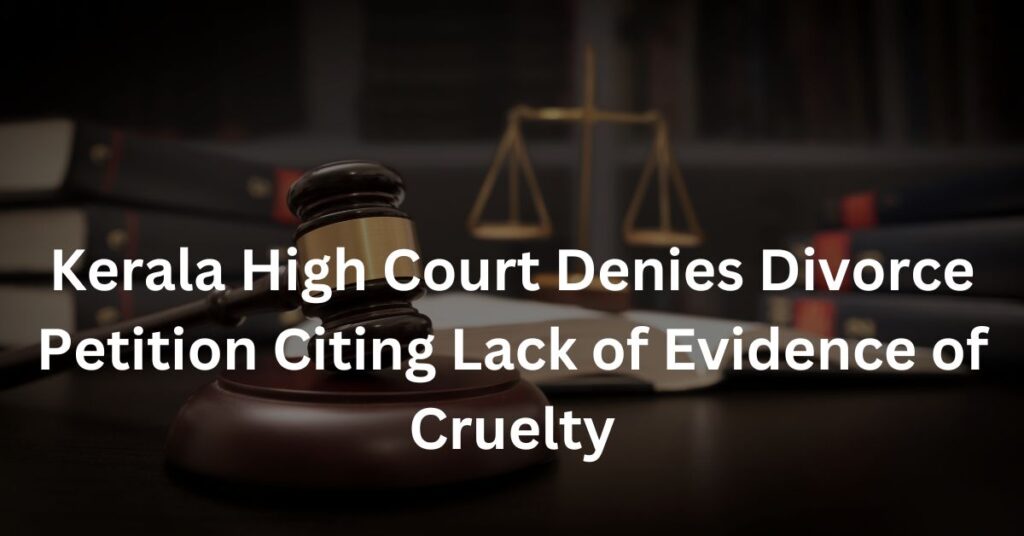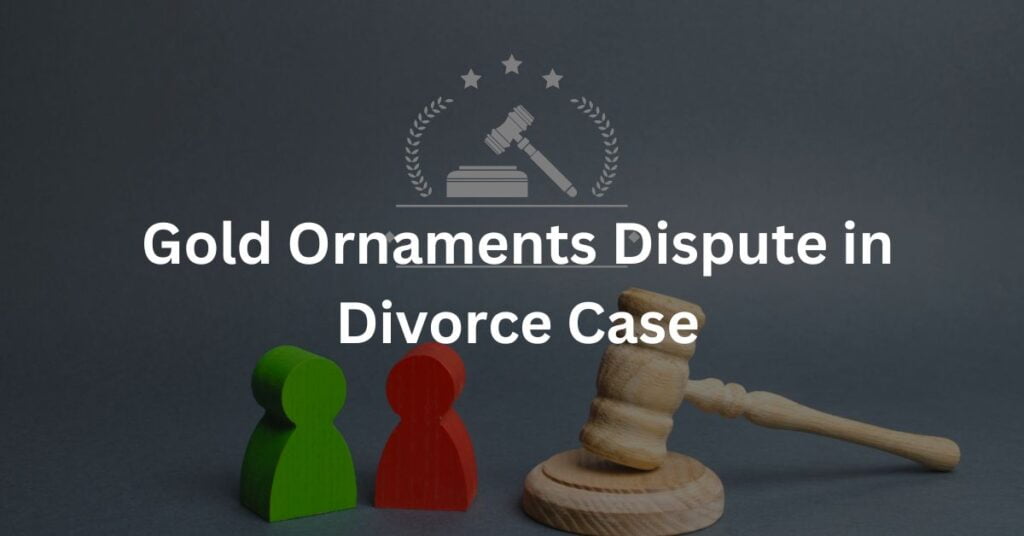In this blog, we discuss a significant High Court judgment concerning a matrimonial appeal on the refusal of mutual divorce in a failed marriage. The case revolves around the grounds of cruelty and desertion, leading to the grant of divorce by the Family Court. The appellant, Dr. Sheeba Alex, contests the decree of divorce obtained by her husband, Ajith T. Thomas, on the ground of desertion. We delve into the arguments presented by both parties and the High Court’s observations on the matter.
Table of Contents
ToggleBackground of the Case
The marriage between Dr. Sheeba Alex and Ajith T. Thomas was solemnized on 14th October 1996, following Christian rites and ceremonies. The couple had two children during their married life. However, their matrimonial journey was fraught with difficulties, including allegations of adultery and desertion. The husband filed for divorce on grounds of desertion and adultery, and wife contested the divorce.
Family Court’s Decision
The Family Court found that the allegations of adultery against Dr. Sheeba Alex were unsubstantiated. However, it held that she had deserted her husband since 2008, leading to the grant of divorce based on the ground of desertion.
Wife’s Arguments
Dr. Sheeba Alex contested the decree of divorce, asserting that she left her husband’s company due to his cruel nature and physical torture. She claimed that she had no choice but to safeguard her children’s future, leading her to move to a foreign country, where she now peacefully resides with her children. She disagreed with the Family Court’s finding that she willingly deserted her husband.

Husband’s Arguments
Ajith T. Thomas contended that Dr. Sheeba Alex had led an adulterous life and deserted him. However, the court found the allegations of adultery unfounded, leaving only the ground of desertion as a basis for the divorce.
High Court’s Observations
- Marriage solemnized on 14.10.1996 as per Christian rites.
- Two children born in wedlock.
- Matrimonial life was troubled; husband accused the wife of adultery and desertion.
- Wife left the husband in 2008, citing emotional and physical torture.
- Wife now resides peacefully with children in a foreign country.
- Both parties admit living separately since 2008, with no attempt at reconciliation.
- No chance of reunion evident after a 15-year separation.
- Both parties agreed that there was no possibility of reconciliation.
- Parties refusing mutual divorce despite failed marriage.
- The court recognized the irretrievable breakdown of the marriage, making it a mere legal formality.
Judgments Referred
- Samar Ghosh vs. Jaya Ghosh case: Long continuous separation may indicate irretrievable break down of the marriage bond, leading to mental cruelty.
- Naveen Kohli vs. Neelu Kohli case: Public interest lies in recognizing wrecked marriages beyond salvage, and no spouse should be compelled to resume life with the consort in a non-existent marriage.
- Beena vs. Shino G Babu case: Incompatibility leading to marriage failure and withholding consent for mutual separation can be treated as cruelty. Spouse refusing divorce on mutual consent despite knowing the marriage’s failure is cruel.
High Court’s Decision
Given the circumstances, the High Court concluded that the marriage was irretrievably broken and had become a fiction due to the long separation. It held that no purpose would be served by refusing to sever the marital tie. Consequently, the MAT.APPEAL NO. 132 OF 2014 was dismissed, and the divorce decree granted by the Family Court was upheld.
In conclusion, this High Court judgment sheds light on the significance of recognizing the irretrievable breakdown of a marriage and the impact of refusing mutual divorce in a failed marriage. The court’s decision emphasizes the need for compassion and understanding when marriages reach a point beyond repair, allowing parties to move on with their lives peacefully.


